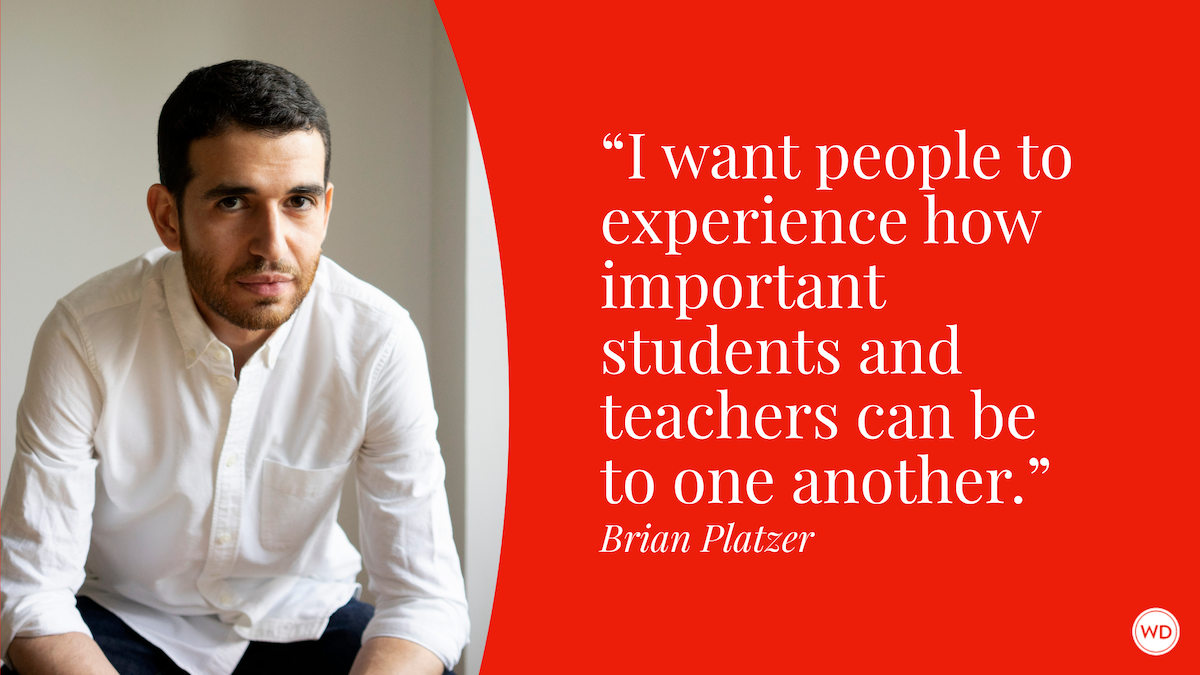Dean Van Nguyen: Don’t Write for Social Media Clout
In this interview, author Dean Van Nguyen discusses the joy of the research process for his new political history and biography, Words for My Comrades.
Dean Van Nguyen is a music journalist and cultural critic for Pitchfork, The Guardian, Bandcamp Daily,and Jacobin, among others. He is based in Dublin, Ireland. Follow him on X (Twitter), Facebook, and Instagram.
In this interview, Dean discusses the joy of the research process for his new political history and biography, Words for My Comrades, his hope for readers, and more.
Name: Dean Van Nguyen
Literary agent: Chris Clemans, Janklow & Nesbit
Book title: Words for My Comrades: A Political History of Tupac Shakur
Publisher: Doubleday
Release date: May 6, 2025
Genre/category: Political history, biography, music criticism
Previous titles: Iron Age: The Art of Ghostface Killah
Elevator pitch: Words for My Comrades is the story of how Tupac Shakur has transcended rap celebrity to become recognized around the planet as a symbol of resistance, social activism, and revolution. The book spans a half century of radical politics, beginning with Tupac’s Black Panther Party heritage—which both informed his worldview and gave his actions a sense of historic continuity—through to his life, death, and body of work, as well as the birth and commercialization of hip-hop, and the modern social justice movements Tupac continues to inspire.
What prompted you to write this book?
I had previously written about socialist thought in rap music. Tupac had featured for both his connection to the Panthers, whose overtly Marxist politics are sometimes lost among images of guns and black leather, and criticisms of wealth inequality, American imperialism, and racial injustice. Building on that work, it became clear to me that the impetus of Words for My Comrades would be to answer the question of how Tupac has become this almost Che Guevara-like figure, this Bob Marley-like figure.
Like Guevara and Marley, Tupac’s image evokes certain ideas and impulses within people. Child soldiers in Sierra Leone took to wearing his t-shirts as their military uniform; rebel militias in the Solomon Islands viewed him as kind of a spiritual guide. The book is a biography insofar as readers should come away with knowledge of Tupac’s life, but I wanted to tell the story in a way that identified and examined each factor that has contributed to this status he holds.
How long did it take to go from idea to publication? And did the idea change during the process?
The book is the result of about three years of solid work—six months to develop the idea, and then two-and-a-half years to complete the manuscript. During that time I largely stuck to the rough chapter outline I had laid out quite early in the process. Whether good planning or good luck, both the narrative and themes always seemed to comfortably fit into that initial plan.
Were there any surprises or learning moments in the publishing process for this title?
I’ve spent most of the last 15 years as a freelance writer, which is, of course, mostly a solo endeavour, but I didn’t realize how solitary it was until writing this book. When you work with major publishers, you have a squad of people supporting your vision every step of the way. And when the book is finished, another tier of people emerges to help you promote and market it. I’ve been extremely lucky to work with people who’ve really believed in the project. It definitely gives you an even greater desire to see it succeed.
Were there any surprises in the writing process for this book?
Even though I had pretty good knowledge of the Tupac Shakur story before I started working on the book, the research required ended up on a level I’d never attempted before. It’s probably a good thing I didn’t realize that until I was in the thick of it.
Really, though, the research was one of the most enjoyable parts of the project for me. Threading so much history into a narrative that was both cohesive and thematically on-point was a challenge, but it’s very satisfying when you feel your work is beginning to fit together. Crucial to that was speaking to everyone from the radical activists of the late 1960s and 1970s, who were unbelievably open about their experience, to those who knew Tupac personally and professionally. It also made clear the importance to any journalist or historian of the newspaper reports written in the wake of an event. That old Phil Graham quote of journalism being the “first rough draft of history” is accurate.
What do you hope readers will get out of your book?
I hope that people who only had a surface level understanding of Tupac’s global icon come away with a deeper recognition of how his heritage, music, and message contributed to that status. But I like to believe it can also be an inspiration to young activists seeking to protest their government from the left. It’s interesting to me that while the beginning of the first Trump presidency was met with rallying cries of residence, the second has been ushered in with a much softer backlash. I get it—people are discouraged, ground down, depressed. I hope this book acts as a reminder of America’s history of leftist resistance, and that revolutionary acts, no matter how small, are never wasted.
If you could share one piece of advice with other writers, what would it be?
The best advice I’ve ever received is probably to simply read every day and write every day. But if I could add something to that, it would be this: Don’t write for social media clout. A hot-take headline might get you a lot of interactions but “likes” etc. shouldn’t be a metric that gratifies you as a thinker or creative.








